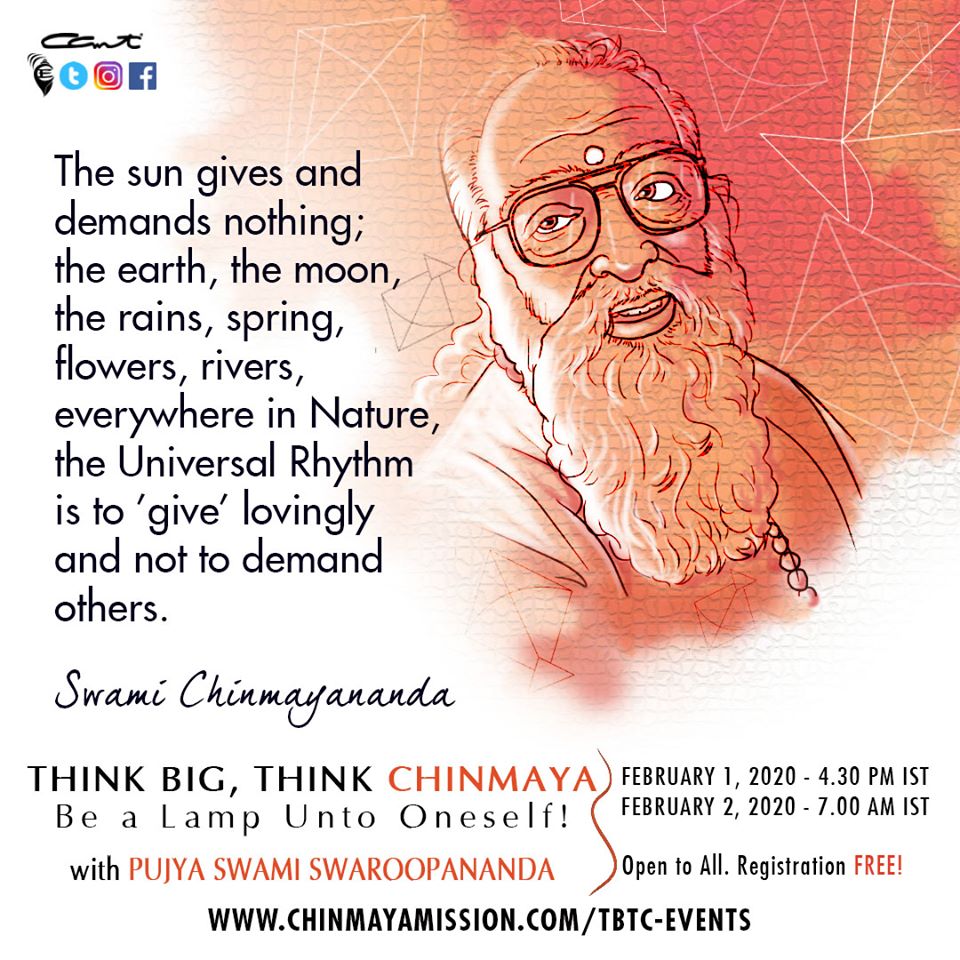The Teachings of the Bhagavadgita : 1.4. - Swami Krishnananda.
Sunday, February 19, 2023. 07:30.
Chapter 1 : This Drama of Life - 4.
=========================================================================
Now, when you take up a particular part in an enactment or a drama, you know very well that there are other actors also, and you are not the sole actor in that performance. Your relationship to other people in that particular performance is the vital thing you have to understand. There may be friends and enemies, which are the roles you may have to play – maybe you are enacting the Ramayana or the Mahabharata or some such thing. Every actor performs a particular duty. And in the sense of that particularisation of the duty, one is different from the other. There is no vital connection between one actor and another, inasmuch as one actor is concerned only with his or her role, and not with the role played by other people in the drama. In that sense every one of us is independent – you have no connection with me, I am not concerned with you. I do what I am expected to do in the little circumference or the circumscribed area of my life, and so on is the case with you also. But, there is a unity of structure in the whole play; otherwise it would not be a play at all. In spite of the individuality and the isolated performances of the different actors, maybe hundreds in number, there is a unity of purpose, an aim and objective with which the drama is played - the objective being in the mind of the director who knows which actor will play which role and what unity there can be between the performance of one and the performance of another. It is not merely the director as an individual that is supposed to know the unity of purpose. Even the individuals will be aware of it, without which knowledge there would not be a harmonious element in respect of other elements, notwithstanding the fact for the purpose of their performance they are individuals.
Here is a little hint that I place before you as to the structure of our social life itself. We are, outwardly speaking, independent persons. Each one is a free bird – we can fly in any way we like - but we are not so free as we may imagine, under the pressure of an error of thinking. In a democratic set-up of a government, each person is free; that is the very meaning of democracy. You are not a shackled person; you are not limited in the operation of your daily performance – you are a free man. That is democracy. But you are not a hundred percent free; a hundred percent freedom given to every person would end in a destruction of the very system of democracy, because two hundred percents are unknown – like two infinities. There will be a clash of persons in one second. In spite of the independence and freedom given to individuals in this free set-up of things, there is a restraint exerted upon each individual which you call the operation of law; you may call it the government if you like. So, there is a restraint that you have to exercise on your part, together with the freedom that you are exercising in life. So restraint and freedom are not opposites, though they are opposites from the point of view of a dictionary meaning of these words. How can restraint and freedom be the same thing? They are two different things, but they are not contradictories. Do you know that in the exercise of your freedom as a citizen of a democratic nation, you are also restraining yourself from interfering with the freedom of other people? Is it not restraint? Do you say that the restraint is in any way opposed to the freedom that you are endowed with? So, freedom and discipline are not opposites, and perhaps the one cannot be there without the other.
But, the human mind being very weak for obvious reasons, is not always able to think in this disciplined manner. Most of us are undisciplined, undisciplined persons. We have a desire for license to do anything. This is not merely not a superhuman way of thinking, it is not even a decent human way of thinking. "Each one for himself and devil take the hindmost" is not democracy. It is a duty that each one feels, not only in regard to oneself but also in regard to others. Many of us are not meant for a pure democratic living, since we are unable to think in such a large way which is essential for this charitable way of existence you call democracy. In one way at least, you may say the universe is like a large democratic organisation, though it is not merely that; it is something else also, to which we shall refer later on. Everyone has a duty in this world, not only to one's self but also to others. You know this very well – a simple truth. You have a duty towards yourself, and in the performance of this duty in regard to yourself you are free; nobody obstructs the performance of the duty you owe to your own self. But, in the duty that you owe to others, you are under the impulsion of a law that operates transcendent to your individuality – transcendent because it is wider than your personality, it is comprehensive of all other people also, in whose relationship you as an individual are involved.
*****
To be continued
=========================================================================








Comments
Post a Comment